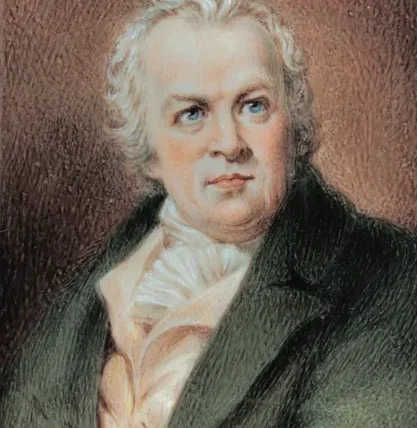Early Life and Education
Jean-Baptiste Lamarck, the renowned French biologist, was born on August 1, 1744, in Bazentin-le-Petit, France. Not much is known about his early life, but he hailed from a modest family background. It is believed that Lamarck’s interest in the natural world and science was fostered during his time at the Jesuit College in Amiens, where he received his primary education.
After graduating from college, Lamarck joined the army and served as a soldier for several years. However, his passion for biology eventually led him to pursue a different path. In his early 20s, he embarked on a journey of self-education and devoted himself to the study of the natural sciences, with a particular focus on botany. Lamarck’s dedication and thirst for knowledge eventually led him to become one of the leading figures in the field of biology.
In 1778, Lamarck published his first scientific work, “Flore française,” which was a comprehensive botanical study of the flora in France. This publication caught the attention of notable scientists of the time, including the renowned botanist, Georges-Louis Leclerc, Comte de Buffon. Impressed by Lamarck’s work, Buffon appointed him as a “keeper of the royal herbarium” at the renowned Jardin du Roi in Paris, which is now known as the Jardin des Plantes.
Lamarck’s time at Jardin des Plantes proved to be a significant turning point in his career. Working closely with Buffon and other distinguished scientists, Lamarck had the opportunity to expand his knowledge and delve into various scientific disciplines. During this period, he not only continued his botanical research but also started exploring other areas, including invertebrate zoology.
In the coming paragraphs, we will explore Lamarck’s contributions to evolutionary theory, his famous idea of the inheritance of acquired characteristics, his impact on the scientific community, and the controversies surrounding his theories.
Career Beginnings
During his early years, Jean-Baptiste Lamarck showed a keen interest in the natural world. Born on August 1, 1744, in Bazentin, France, he grew up in a family of soldiers but possessed a curiosity that set him apart. As a young man, he enlisted in the army and served in the Seven Years’ War, an experience that exposed him to the diversity of the earth’s flora and fauna. It was during this period that Lamarck’s passion for biology began to take root.
After the war, Lamarck embarked on a career in botany, where he dedicated himself to the study of plants and their classification. His extensive travels throughout France and neighboring countries allowed him to collect and document a vast array of specimens. Lamarck’s diligent work caught the attention of prominent botanists of the time, leading to his appointment as a professor of plants at the Jardin des Plantes in Paris in 1788.
Lamarck’s appointment at the Jardin des Plantes marked the beginning of his illustrious scientific career. His proficiency in organizing botanical collections earned him recognition and respect among his colleagues. It was at this institution that he would later expand his interests to encompass zoology and make significant contributions to the field of evolutionary theory. Lamarck may have been called to the study of plants, but his inquisitive mind and insatiable curiosity would soon lead him on a new scientific journey.
Contributions to Evolutionary Theory
Jean-Baptiste Lamarck made significant contributions to evolutionary theory during his lifetime. One of his most notable contributions was the proposal of the theory of the inheritance of acquired characteristics.
Lamarck argued that organisms can pass on traits that they acquire during their lifetime to their offspring. This theory was in contrast to the prevailing belief at the time that only traits inherited through genetic material could be passed on. Lamarck’s idea laid the groundwork for the concept of epigenetics, which explores how external factors can influence gene expression.
In addition to the inheritance of acquired characteristics, Lamarck also formulated a comprehensive theory of evolution. He proposed that species change over time through a process of adaptation to their environment.
Lamarck believed that organisms have an innate drive to adapt to their surroundings, and that this adaptation leads to the development of new traits and species. While his theory was later supplanted by Charles Darwin’s theory of natural selection, Lamarck’s ideas provided an important foundation for understanding the mechanism of evolution.
Lamarck’s contributions to evolutionary theory were groundbreaking at the time, challenging prevailing beliefs and setting the stage for further scientific inquiry. His ideas opened up new avenues of research and inspired future generations of scientists to explore the fascinating field of evolutionary biology. While Lamarck’s theories may not have stood the test of time in their entirety, they played a crucial role in advancing our understanding of how species evolve and adapt.
The Inheritance of Acquired Characteristics
The concept of the inheritance of acquired characteristics was a fundamental aspect of Jean-Baptiste Lamarck’s theory of evolution. According to Lamarck, organisms could pass on traits or characteristics that they acquired during their lifetime to their offspring. This theory suggested that an organism’s environment played a crucial role in shaping its evolution. Lamarck believed that individuals could acquire new traits through their interactions with the environment, and these acquired traits would then be passed on to future generations.
Lamarck’s theory of the inheritance of acquired characteristics can be illustrated through a classic example: the giraffe’s neck. Lamarck proposed that giraffes initially had short necks but, over generations, as they continually stretched their necks to reach leaves higher in the trees, their necks became longer. According to Lamarck, this acquired trait of a long neck would then be passed on to their offspring, resulting in giraffes with even longer necks.
While Lamarck’s theory was groundbreaking at the time, it is important to note that it has been largely discredited by modern biology. The modern understanding of genetics and inheritance, as supported by evidence from the field of genetics, does not align with Lamarck’s ideas. We now know that traits are primarily determined by the genetic information contained in an organism’s DNA and are passed on through genes. Lamarck’s theory failed to account for the mechanism of inheritance and the role of genetic variation in driving evolution.
Despite its eventual rejection by the scientific community, Lamarck’s theory of the inheritance of acquired characteristics played a crucial role in the development of evolutionary thought. It paved the way for further exploration and understanding of the mechanisms of evolution, leading to the development of the modern synthesis of evolutionary biology. While Lamarck’s ideas may not be accurate, his contributions to evolutionary theory cannot be overlooked.
Lamarck’s Theory of Evolution
Lamarck’s Theory of Evolution, also known as Lamarckism, was a groundbreaking concept in the field of biology that proposed a theory of how species changed and adapted over time. According to Lamarck, evolution occurred through the inheritance of acquired characteristics. He believed that organisms could actively modify their own traits in response to their environment and pass these acquired traits down to future generations.
In Lamarck’s theory, organisms would develop new traits or lose existing ones based on their use or disuse. For example, if an organism used a certain body part frequently, it would become more developed and stronger. This acquired characteristic would then be passed on to its offspring, leading to gradual changes in the species over time. Lamarck’s theory also suggested that these changes were driven by an inherent drive for perfection and complexity in organisms.
Lamarckism had a significant impact on the field of biology and influenced the development of evolutionary thought. It was one of the earliest attempts to explain how species changed and adapted to their surroundings. Lamarck’s theory challenged the prevailing belief in the fixity of species and introduced the concept of gradual transformation over time.
Despite its initial influence, Lamarck’s theory eventually faced criticism and controversy. One of the main criticisms was the lack of empirical evidence to support the idea of the inheritance of acquired characteristics. Additionally, the theory did not adequately account for the role of natural selection, which was later proposed by Charles Darwin as a mechanism for evolution.
Nevertheless, Lamarck’s theory laid the groundwork for further exploration and understanding of evolutionary processes. It sparked important discussions and debates in the scientific community, contributing to the ongoing development of evolutionary theory. While his specific ideas may not have stood the test of time, Lamarck’s contributions to the field of biology are still recognized and appreciated today.
Impact on the Scientific Community
Lamarck’s contributions to evolutionary theory had a significant impact on the scientific community, shaping the way scientists understood the mechanisms of evolution. His theory of the inheritance of acquired characteristics challenged the prevailing beliefs of his time and paved the way for future advancements in the field. By proposing that organisms could pass on traits acquired during their lifetime to their offspring, Lamarck challenged the notion that all traits were predetermined by genetic inheritance.
Lamarck’s theory of evolution also sparked intense debate and controversy within the scientific community. While some scientists embraced his ideas, others vehemently rejected them. The concept of acquired characteristics stood in contrast to the prevailing belief in the fixity of species and the notion that all traits were solely determined by genetic inheritance. This controversy fueled further research and exploration into the mechanisms of evolution, ultimately leading to the development of more comprehensive theories such as Darwin’s theory of natural selection.
In addition to his immediate impact, Lamarck’s work laid the foundation for future scientific discoveries in the field of genetics. Although his specific ideas about the inheritance of acquired characteristics have been largely disproven, his emphasis on the role of the environment in shaping traits foreshadowed later developments in epigenetics.
This emerging field explores how environmental factors can influence gene expression and potentially be passed on to future generations. Thus, while Lamarck’s theories may not have stood the test of time, his contributions to evolutionary biology have left a lasting legacy in shaping our understanding of how organisms evolve.
Criticism and Controversy
While Lamarck’s theory of evolution was groundbreaking and thought-provoking at the time, it was not without its fair share of criticism and controversy. One of the main points of contention centered around Lamarck’s idea of the inheritance of acquired characteristics. Many scientists of the time, including his contemporary, Charles Darwin, found this aspect of Lamarck’s theory to be implausible and lacking empirical evidence. They argued that traits acquired by an organism during its lifetime cannot be passed on to future generations, as Lamarck proposed.
Critics also pointed out the lack of concrete evidence to support Lamarck’s theory. Unlike Darwin, who meticulously collected and documented a wide variety of specimens and observations during his expeditions, Lamarck relied more heavily on theoretical reasoning and extrapolation. This lack of empirical evidence made it difficult for some scientists to fully accept and endorse Lamarck’s ideas. Additionally, the absence of a well-defined mechanism for how acquired traits are supposedly inherited further fueled the skepticism surrounding his theory.
Legacy and Influence
Lamarck’s legacy and influence on the field of evolutionary biology cannot be overstated. Despite the criticisms and controversies surrounding his theory, his contributions paved the way for the development of modern evolutionary thought. Lamarck’s insistence on the dynamic nature of species and their ability to adapt to their environment provided a foundation for future researchers to build upon.
One of the most significant influences of Lamarck’s work was on Charles Darwin, who later developed the theory of natural selection. While Darwin’s theory differed in many ways from Lamarck’s, he acknowledged the importance of Lamarck’s ideas in shaping his own understanding of evolution. Darwin recognized the need to explain not only how species change over time but also how they are able to adapt to their surroundings. This aspect of Lamarck’s theory was integrated into the broader framework of natural selection, ultimately leading to a more comprehensive understanding of evolutionary processes.
Furthermore, Lamarck’s theory opened up new avenues of research and sparked debates within the scientific community. While his idea of acquired characteristics being passed on to future generations has been largely discredited, it prompted scientists to explore the mechanisms behind heredity and transmission of traits. This led to groundbreaking discoveries in the field of genetics, ultimately leading to the development of the modern synthesis of evolutionary theory.
Lamarck’s Other Scientific Works
Lamarck’s contributions to science extended beyond his theory of evolution. Throughout his career, he published several other scientific works that explored various aspects of the natural world. One notable publication was his work on the classification of invertebrate animals. In this book, Lamarck meticulously categorized and described numerous species, contributing to the field of zoology and providing a foundation for future research in the field.
In addition to his work on invertebrates, Lamarck also delved into the study of botany. He published a comprehensive study on the classification and properties of plants, further expanding our understanding of the diverse plant kingdom. His research not only focused on the structure and characteristics of plants but also examined their interactions with the environment. By studying how plants adapted to different conditions, Lamarck laid the groundwork for future scientific inquiries into plant ecology.
Lamarck’s contributions to these scientific fields showcased his meticulous approach in observing and categorizing the natural world. His works not only expanded our knowledge of various organisms but also served as valuable resources for future scientists and researchers. Through his dedication and contribution to multiple scientific disciplines, Lamarck solidified his position as a respected and influential figure in the scientific community.
Personal Life and Family
Lamarck’s personal life and family played an integral role in shaping his journey as a scientist. Born in 1744 in northern France, Lamarck came from a middle-class family. Little is known about his early childhood and upbringing, but it is believed that his parents instilled in him a love for nature and the outdoors. This early exposure to the natural world may have laid the foundation for Lamarck’s fascination with biology and the study of living organisms.
As he grew older, Lamarck’s passion for science blossomed, leading him to pursue an education in the field. He attended a Jesuit college in Amiens, where he studied philosophy and natural history. It was during this time that he developed a keen interest in botany and zoology, setting the stage for his later groundbreaking work in the field of evolutionary theory.
Lamarck’s family life, on the other hand, remained relatively private. He married Marie Anne Rosalie Delaplace in 1778, and together they had six children. However, his family life was marred by tragedy, as several of his children died at a young age. Despite these personal hardships, Lamarck’s dedication to his scientific pursuits remained unwavering.
While Lamarck’s personal life and family may not have directly influenced his scientific discoveries, they provided him with a sense of purpose and motivation. His upbringing in nature and his commitment to his loved ones likely fueled his desire to understand the natural world and make significant contributions to the field of biology. With a solid foundation in place, Lamarck’s career would soon take off, propelling him to the forefront of scientific thought.
Lamarck’s Final Years
In the final years of his life, Jean-Baptiste Lamarck faced many challenges and setbacks, both personally and professionally. By this time, Lamarck’s theories on evolution had been met with significant criticism from his scientific peers, leaving him feeling isolated and marginalized within the scientific community. Despite his best efforts to defend and refine his ideas, Lamarck struggled to gain widespread acceptance for his work.
Moreover, Lamarck’s health began to decline, further impacting his ability to continue his research and engage in intellectual discourse. As the years went on, he experienced increasing physical limitations that made it difficult for him to carry out experiments and conduct fieldwork. This, coupled with the emotional toll of the ongoing criticism and rejection, made Lamarck’s final years a period of great frustration and disappointment.
Despite these challenges, Lamarck remained committed to his work until the end. He continued to write and publish, albeit to a much smaller audience, in an effort to further develop and refine his theories. However, his efforts were largely overshadowed by the rising popularity of Charles Darwin and his theory of natural selection, which quickly became the dominant explanation for the diversity of life on Earth.
In his final years, Lamarck also found solace in his personal life and family. He devoted more time to his loved ones, enjoying the company of his children and grandchildren. These relationships provided him with a sense of fulfillment and happiness amidst the professional hardships he faced.
As we reflect on Lamarck’s final years, it is important to acknowledge the significant contributions he made to the field of evolutionary theory, despite the lack of recognition and acceptance he received in his lifetime. His perseverance and dedication to his ideas laid the groundwork for future researchers and scientists who would build upon his work and shape our understanding of evolution. T
hough Lamarck’s theories may not have stood the test of time, his legacy endures as a reminder of the complex and evolving nature of scientific inquiry.
Recognition and Honors
Throughout his career, Jean-Baptiste Lamarck received recognition and honors for his groundbreaking work in the field of evolutionary biology. His contributions to the understanding of evolution and the inheritance of acquired characteristics were seen as significant advancements in scientific thought.
Lamarck’s work gained recognition among his peers, and in 1801, he was appointed to the prestigious position of Chair of Invertebrate Zoology at the Muséum National d’Histoire Naturelle in Paris. This appointment solidified his status as a respected scientist and gave him the platform to further develop and present his theories.
In 1809, Lamarck was elected as a member of the French Academy of Sciences, a highly esteemed honor that recognized his exceptional contributions to the scientific community. This recognition further elevated his reputation and gave him a voice among the leading scientists of his time.
Lamarck’s theories and ideas were met with both admiration and criticism. While some scientists acknowledged the importance of his work, others vehemently opposed his ideas, leading to controversy within the scientific community. Despite the criticism, Lamarck’s theories paved the way for future research and laid the groundwork for the development of evolutionary biology as a distinct field of study.
Lamarck’s recognition and honors extended beyond his lifetime. His theories and contributions continue to be revered by scholars and scientists, especially in the field of biology. His work opened up new avenues for understanding evolutionary mechanisms and provided a foundation for the later development of Darwinian evolution.







